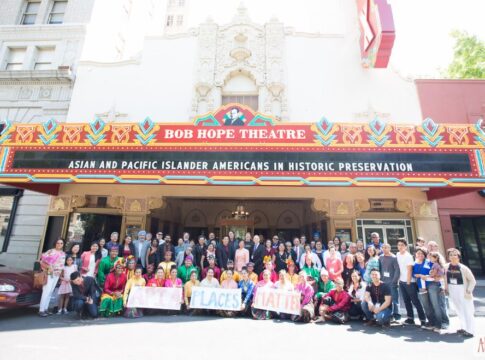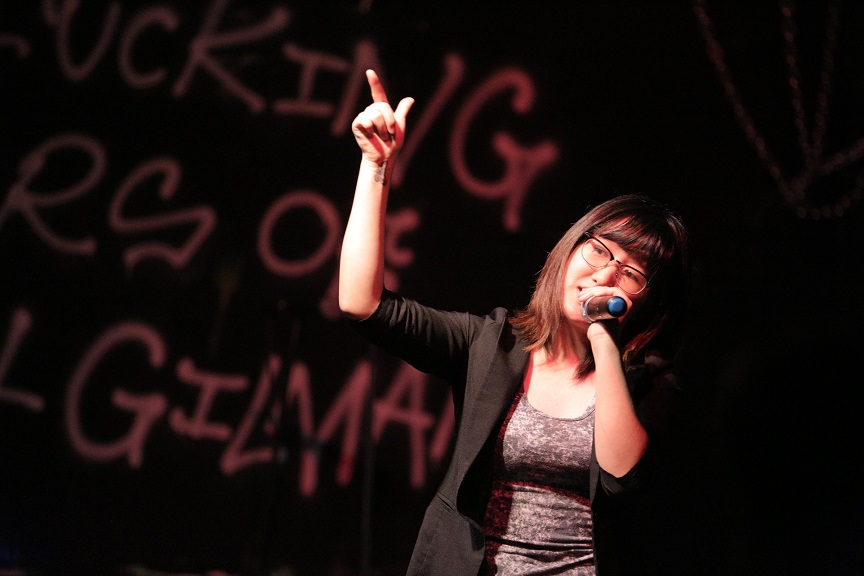
By Takuma Okada
AsAmNews Intern
What Is APARTY?
APARTY
[uh-PAHRT-ee]
adjective
1. With the characteristics of being a part of something.
2. With the characteristics of being separate, or set apart, from something.
noun
1. A social gathering of guests. Synonyms: party.
2. A music showcase curated by LEX for APA Heritage Month featuring the dopest Asian American musicians in the Bay.
LATEST STORIES
Tomorrow night, the Hotel Utah in San Francisco will host the first hopefully annual APARTY, a concert organized by rapper and writer Alex Sun-Liu, artist name LEX.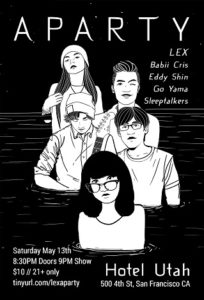
Visibility for Asian Americans in the music industry has always been low, on all levels. Of course, the situation has improved slightly fairly recently. Artists such as Run River North, the Slants, Mitski, Steve Aoki, and frontman for The Family Crest Liam McCormick are breaking out on a national level. Kollaboration, an LA based nonprofit that works to support Asian Americans in the arts, even organized the very first all Asian American showcase at the South by Southwest festival this year.
However, Sun-Liu still sees the lack of representation, especially in genres like hip-hop, r&b, soul, pop punk, and electronica, and in positions as producers. Part of the model minority myth sometimes includes seeing Asian Americans as just classical musicians, or sometimes singer-songwriters. It’s why Sun-Liu created APARTY, and invited some of the best in the Bay Area music scene on the lineup. She hopes to make it a regular event, and even expand it with ideas like a showcase of Asian American rappers.
I talked with Alex Sun-Liu earlier about APARTY, being an Asian American musician, and the Bay Area. Responses from other artists are from a similar separate interview:
1. What reasons did you have for creating or joining the APARTY lineup?
LEX: APARTY aims to highlight Asian American musicians in the Bay Area who are creating diverse and unique sounds, especially in genres where they are underrepresented. The goal is to show that while we’ve been set APART in the music scene, we are A PART of it, and we can throw A PARTY.
2. What do you enjoy about the Bay Area music scene?
LEX: I like that I can leverage my Asianness as a marketable advantage. There’s a healthy Asian American population and music community here, and while my race and gender might have been an obstacle for me as a rapper in Detroit, for example (thinking about Eminem here), most people here see me do my thing and are incredibly supportive. Being Asian can be a differentiator that moves me further instead of pushing me back. That, and the rest of the music community is incredibly talented and constantly inspiring me.
3. Who are your favorite Asian American musicians?
4. What is your heritage? Does it have a musical influence on you?
LEX: I’m Taiwanese American. It’s a central part of my work. I celebrate my Asianness while making sure my content is still relatable to a wide audience. For example, “Undateable” is an anthem for independent women that also brings up my dating experience as an Asian woman; “Glasses” is an anthem for the four-eyed, that also takes ownership of the Asian nerd stereotype. My identity as a third-culture kid from Taipei also plays into my choice of imagery, hometown shout outs, and even language.
Babii Cris: I descend from Japanese, Hawaiian and Filipino ancestors. My grandmother on my mother’s side came straight from the Philippines. My other grandma came to America from Peru after she was born in Japan. I started writing at 8 years old with a runaway mom fleeing her baby’s father, and I fight because my grandparents had to fight to come here, and to survive on these cold streets to make a better life for their children. I want to inspire people from different backgrounds to be passionate and persistent about what they love.
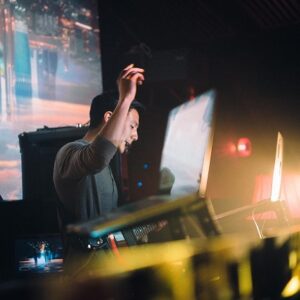
LEX: I’ve been dismissed and not taken seriously because of the way I look and sound. I experienced disregard from a local hip hop figurehead who will probably never book me at his shows – part of why I started organizing my own. On many occasions I’m the only Asian person at an open mic, industry mixer, rock show, or hip hop show. Sometimes all it takes is a good look around you to realize how few Asian Americans you see headlining local shows or signing record deals. Sure, the music industry is tough for everyone, but the difficulty level doubles when you are underrepresented, or worse, misrepresented – as in William Hung, one of the only Asian ‘celebrities’ most people can remember.
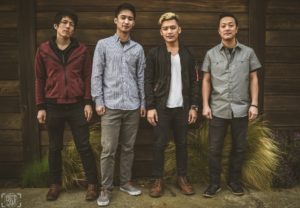
I’m having trouble naming a full Asian or Asian American artist that really broke out in the music industry in the US. The last person I can think of is Psy (and for the record, I saw the music video for Gangnam Style BEFORE it hit 1 million views – also, for the record, I’m being facetious). Before that it was probably William Hung who I think set back Asian artists in America back a couple hundred years. There are a few artists with mixed Asian descent such as Mike Shinoda of Linkin Park, Apl de Ap of the Black Eyed Peas, and Bruno Mars but I don’t think the general public would really consider them Asian because they don’t fit the visual stereotype of what “Asian” looks like.
About the artists
LEX is the smartrap project of female rapper, wordplay master and stereotype smasher Alex Sun Liu. LEX uses complex language, personal lyrics, multisyllabic rhymes and comedic flair to deliver the unique perspective of a “third-culture” female millennial transplant living in the Bay Area. She aims to shock and entertain audiences while fighting anti-intellectualism in America. She has a far-reaching range of musical influences including Hamilton the Musical, Watsky, Bo Burnham, and Pink Guy to name a few.
Babii Cris, 24, is an independent San Francisco based emcee, sound engineer, and producer pushing boundaries of music through experiences, emotions, and actions from yesterday, today and tomorrow. While one cannot define her music under just one genre, she combines the rhythm of old school, the energy of West Coast hip hop, the suave of alternative hip hop, and the lyricism of conscious rap with major influences of nineties and early millennium hip hop and RnB, alternative rock, and just recently, some chillstep. Raised by single teenage parents, Babii Cris grew up bobbing her head to nineties hip hop and early millennium artists such as Eminem, Alicia Keys, TLC, Bone Thugs N Harmony, The Fugees, Amanda Perez, NB Ridaz, Outkast, and many more.
Eddy Shin is a singer/songwriter/guitarist based in San Francisco, CA, he plays a soulful, eclectic blend of r&b/pop/jazz/funk/soul to create music with smooth melodies, searing guitars, and heartfelt lyrics.
Go Yama is a Japanese American producer, ramen lover, and guitarist from California and Boston who produces a wide range of styles from glitchy, experimental downtempo to dancy kawaii tracks. Fusing beat scene sensibility with looping and live instrumentation, Go Yama creates an engaging and cosmic experience both on stage and in your speakers.
Sleeptalkers is a one-two punch of nostalgia and energy all in a tightly packaged gift for your ears and your heart. Taking cues from their roots, Sleeptalkers seeks to share their brand of familiar but unique take on alternative rock. With catchy guitar licks and memorable hooks, their lyrics explore themes of self-improvement, love, and staying positive, especially when it feels impossible to. Sleeptalkers is channeled through Gerard (Vox/Guitar), Ryan W (Bass/Vox), and Ryan A (Drums).
AsAmNews has Asian America in its heart. We’re an all-volunteer effort of dedicated staff and interns. You can show your support by liking our Facebook page at www.facebook.com/asamnews, following us on Twitter, sharing our stories, interning or joining our staff.


